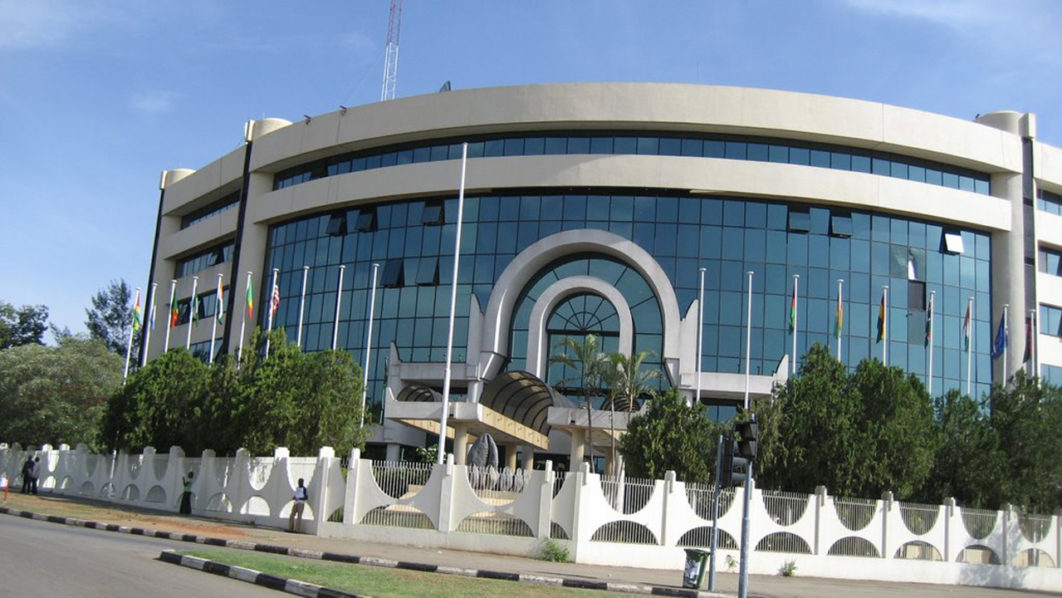The ECOWAS Court has ordered the Federal Republic of Nigeria to pay a lump sum of Eighty Thousand US Dollars (USD80, 000.00) to a former police officer, Evaristus D. Egbebu, as compensation for the moral prejudice and all other losses suffered as a result of the violation of his rights related to his compulsory retirement in 1990.
In awarding the compensation, the Court in the judgment read by Justice Gberi-be Ouattara held the government in violation of his rights under Articles 3(2) of International Covenant on Civil Political Rights (ICCPR) and 7(1) (d) of the African Charter on Human and Peoples’ Rights.
In particular, the Court in the judgment of Friday, 4th June 2021 declared the government in violation of right of the Applicant to an effective remedy under Article 2(3) of the International Covenant on Civil and Political Rights as well as his right to be tried within a reasonable time under Article 7(1) (d) of the African Charter on Human and Peoples’ Rights.
It however dismissed all other declarations sought by the Applicant, including an order of the Court on the government to strictly comply with the order of the country’s High Court ordering his reinstatement to his appropriate rank in the Nigeria Police Force without loss of seniority and the payment of his salary and emoluments from the 27th November 1990 date of the compulsory retirement until 19th February 2009, the date of the judgment.
‘It is not in doubt that this Court is not an enforcing body for decisions of national courts of Member States and that it lacks the capacity to compel enforcement of decisions of national Courts,’ Court noted, adding however ‘that what is peculiar about the instant case is that the Applicant’s efforts to secure compliance with his judgment by recourse to the domestic mechanisms have been frustrated by the Respondent when his Contempt Application which sought to compel the relevant agents of the Respondent to execute the judgment was held in abeyance.
The Court added: ‘It is unambiguously clear, contrary to what the Respondent wants the Court to believe, that the appropriate measures were not taken by the competent Authorities of the Respondent to give effect to the judgment of 19 February 2009.
‘When the Applicant initiated the proceedings to compel them to do the needful, his efforts have been unreasonably and unjustifiably frustrated by the Respondent’s judicial officers.
In conclusion, the Court held that “it is unable to honour the invitation extended to it by the Applicant in his relief 43 (c) that reads: “to order the Respondent to strictly obey the judgment order of Court in EXHIBIT 1 to wit: “The plaintiff should therefore be reinstated to his appropriate rank in the Nigeria Police Force, without loss of seniority and should be paid all his salaries and emoluments from 27/10/90 until today.”
In the documents filed before the Court, Mr Egbebu said he joined the force in August 1978 but was compulsorily retired from service on 27th November 1990, a decision which he challenged in the Federal High Court which ordered his reinstatement.
He alleged that the relevant authorities of the Respondent who have the responsibility to implement the Applicant’s judgment failed and/or refused to obey the judgment which culminated in the Applicant serving five (5) written reminders on them demanding compliance with the judgment to no avail which compelled him to petition the country’s National Human Rights Commission which also wrote in support of the enforcement of the decision.
Among the reliefs sought was an order of the ECOWAS court for the payment by the Respondent of the sum of Twenty Million Dollars ($20,000,000) damages to the Applicant for the protracted violation of Applicant’s human right to the fruit of his judgment and another 1 million dollars as costs.
In its defence, the government raised a preliminary objection contending that firstly, that the Protocol establishing the Court, and the Rules of Court cannot be applied retroactively; secondly, that the Court is not a court of appeal, and lastly the human rights whose protection is sought are raised as incidental and not as the main issue.
But in dismissing the preliminary objection, the Court noted that it draws its jurisdiction to examine human rights violation cases in ECOWAS Member States from the 2005 Supplementary Protocol A/SP.1/01/05 of 19th January 2005, which came into force on the same date, as well as from its Rules adopted on 3rd June 2002
In these circumstances, the Court said, the argument by the Respondent that the Court would be engaging in retroactivity if it applied the texts on the Court in this case cannot be sustained. Indeed, the starting point of the facts in the present suit is well situated after the adoption of the Supplementary Protocol A/SP.1/01/05 of 19 January 2005, by which the jurisdiction of the Court was widened to cover cases of human rights violations.
It therefore held that it be considered that the said facts are covered by the Protocol on the Court, as amended.
The Court added : ‘Since the Applicant is alleging violation of his rights as provided for under Article 7 of the African Charter without specifically asking the Court to review the decision of the Respondent’s municipal judicial authorities, the jurisdiction of the Court cannot be denied him and the Courts so holds.’
It therefore held that it has jurisdiction to hear the matter.
Also on the panel in the suit were Honourable Justices Edward Amoako Asante (presiding) and Dupe Atoki.

